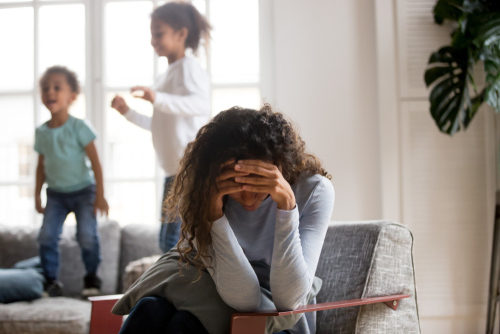Feeling Tapped Out? Coping Strategies and Mutual Support

These have been trying times for almost everyone. We shelter in place and practice physical distancing to mitigate the spread of COVID-19. Between reduced in-person social contact, illness and death around us, and heightened economic concerns, we’re all exhausted. If you’re weathering the pandemic with your partner or spouse, you’re both exhausted. How can you help each other when you’re both feeling tapped out? Keep reading for some useful coping strategies you and your loved one can use.
Why Are We So Tired?
Feeling physically and mentally depleted during a pandemic isn’t surprising. Fordham University ethics professor Elizabeth Yuko describes “moral fatigue,” the feeling that every decision carries life-or-death consequences. We’re forced to weigh serious outcomes for everyday mundane actions. Yuko quotes fellow Fordham professor Dr. Michael Baur, who explains it this way: “Now, small types of interaction can have severe consequences. It requires an added level of mental effort, carefulness and reflectiveness.” And since we’re not used to this level of processing, it’s taking a toll on our mental and emotional health.
Anxiety is also at the root of our exhaustion. The Cut’s Katie Heaney mentions three types of fatigue: physical, mental, and emotional. Most of us are experiencing the last type, thanks to being on high emotional alert and constantly under stress. “Emotional fatigue is…going to wake you up at three in the morning or give you insomnia,” says clinical psychologist Curtis Reisinger. And with very real consequences – unemployment, political instability, an upcoming eviction crisis, and future waves of illness – there’s plenty to fuel our worry-addled minds. Cleveland Clinic names several typical “quarantine fatigue” symptoms: irritability, overeating or undereating, insomnia, lack of motivation, racing thoughts, and feeling on edge.
Anxiety, Exhaustion, and Relationship Effects
Anxiety is a universal human experience. But it doesn’t just impact our health – it can also jeopardize our relationships. GoodTherapy discusses anxiety’s negative impacts on how we relate to our loved ones. You’re less aware of both your own needs and your partner’s. It also makes communication more difficult and kicks in greater self-preservation tendencies, reducing compassion and the willingness to be vulnerable. It limits your ability to feel joy or be present without discomfort, leaving you stuck in emotional paralysis. The worst part? You not only wear yourself out, but the stress can zap your loved ones of energy.
Helping Yourself and Your Partner
Self-care is a critical step in coping with pandemic fatigue. Heaney passes on several useful suggestions for those dealing with emotional fatigue.
- Establish a regular schedule. Wake up and go to bed at the same times each day whenever possible. Shower and dress every day, even if you aren’t leaving home. Keep daily meals at consistent times.
- Practice good sleep hygiene. Avoid looking at screens for an hour before bedtime: They emit blue spectrum light, which mimics sunlight at sunrise rather than sunset. Replace that screen time with relaxing activities such as deep-breathing exercises, a hot bath, or the reading of a (non-electronic) book.
- Give yourself some recharge time. That includes limiting your daily diet of news and social media. Try spending time outdoors, checking in with friends and family, and taking time to enjoy something fun and relaxing.
Compassion is critical during stressful times. As Time’s Belinda Luscombe advises, avoid accusations and blaming. Instead, ask questions and listen to your partner. Also, build a schedule that respects both partners’ needs, flexibility, and boundaries. It should include alone time plus ample room to equitably balance household responsibilities. Don’t forget to ask for what you need and be as specific as possible.
Taking Care of Yourselves and Each Other
Sheltering in place with a romantic partner can bring both blessings and challenges. Good coping strategies begin with caring for yourselves. However, practicing compassion with each other is also key. After all, you’ll need both your individual and collective strengths to meet what lies ahead.














